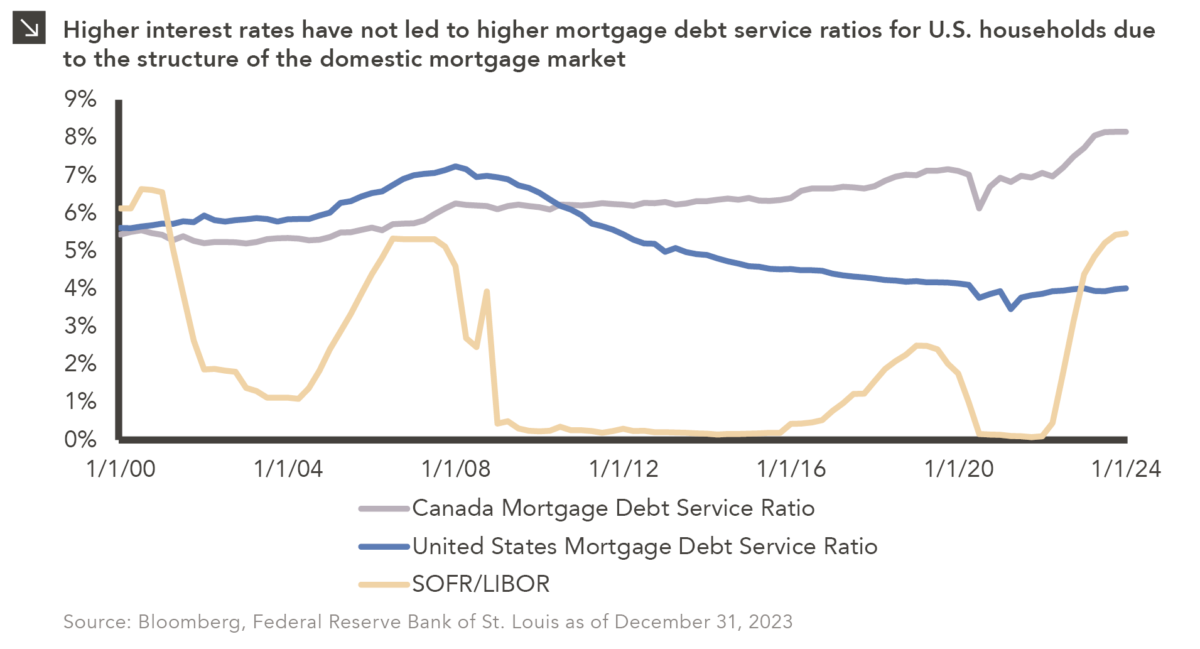05.14.2024
The “Fix” Is In!
The strength of the U.S. economy over the last several quarters has surprised many investors, as consensus expectations from the…

Today’s Chart of the Week looks at the historic level of the S&P 500 Index relative to the forward estimated price-to-earnings (“P/E”) ratio of the S&P 500 from January 1, 2006 to January 15, 2013. The purpose of this chart is to see whether or not the forward looking P/E ratio can predict performance of the index. The P/E ratio compares the value of the share price to estimated earnings per share over the subsequent year. A higher P/E suggests that the market may be approaching a downturn, while a lower P/E may represent a buying opportunity and potential for market gains. Over the last seven years, the forward P/E ratio has averaged 12.5 (depicted in green).
The correlation between forward P/E ratio and the following one year return has been negative, which is to be expected: as suggested above, lower P/E ratios are typically followed by a rising market, while higher P/E ratios have predicted negative returns. Looking at the chart, we see that this basic intuition is supported: low P/E ratios are followed by rising markets. However, the correlation has not been especially strong, with a value of -.39 for the seven years studied in this analysis. More importantly, the correlation has not been stable over this time period, thus making the reliance on forward P/E ratios to predict market performance relatively useless. Certainly, outliers of this ratio – such as its extreme low value on March 9, 2009 (the date that the market bottomed following the financial crisis) – have been useful indicators of extreme market conditions, but they have not proven to be a consistent market predictor.
Therefore, inference of 2013 stock market performance based upon the most recent figure of 11.9 (below the long term average of 12.5) is not meaningful. As much as we would like to extract a precise prediction for the following year’s stock market performance, the relationship between the two variables is not strong enough to predict future performance.
The opinions expressed herein are those of Marquette Associates, Inc. (“Marquette”), and are subject to change without notice. This material is not financial advice or an offer to purchase or sell any product. Marquette reserves the right to modify its current investment strategies and techniques based on changing market dynamics or client needs.

05.14.2024
The strength of the U.S. economy over the last several quarters has surprised many investors, as consensus expectations from the…

05.09.2024
Argentina has faced myriad economic headwinds in recent time, including hyperinflation, currency-related difficulties, and a series of defaults on its…

05.02.2024
Despite mixed performance to start 2024, bitcoin finished the first quarter up roughly 68%. Buoyed by a broad weakening of…

04.26.2024
This video is a recording of a live webinar held April 25 by Marquette’s research team analyzing the…
04.25.2024
Any ride on the London Tube reminds riders to mind the gap: Beware the space between train car and platform…

04.24.2024
Foreign investment isn’t the only thing streaming into Japan. In 2023, the number of travelers to the country surpassed long-term…
Research alerts keep you updated on our latest research publications. Simply enter your contact information, choose the research alerts you would like to receive and click Subscribe. Alerts will be sent as research is published.
We respect your privacy. We will never share or sell your information.
If you have questions or need further information, please contact us directly and we will respond to your inquiry within 24 hours.
Contact Us >